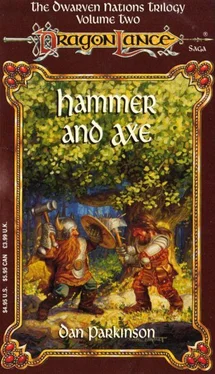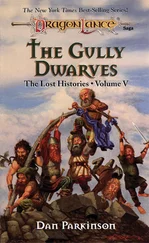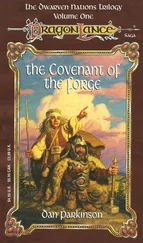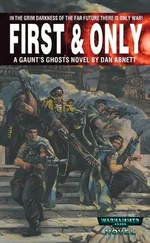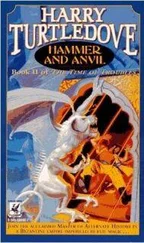Dan Parkinson - Hammer and Axe
Здесь есть возможность читать онлайн «Dan Parkinson - Hammer and Axe» весь текст электронной книги совершенно бесплатно (целиком полную версию без сокращений). В некоторых случаях можно слушать аудио, скачать через торрент в формате fb2 и присутствует краткое содержание. Жанр: Фэнтези, на английском языке. Описание произведения, (предисловие) а так же отзывы посетителей доступны на портале библиотеки ЛибКат.
- Название:Hammer and Axe
- Автор:
- Жанр:
- Год:неизвестен
- ISBN:нет данных
- Рейтинг книги:4 / 5. Голосов: 1
-
Избранное:Добавить в избранное
- Отзывы:
-
Ваша оценка:
- 80
- 1
- 2
- 3
- 4
- 5
Hammer and Axe: краткое содержание, описание и аннотация
Предлагаем к чтению аннотацию, описание, краткое содержание или предисловие (зависит от того, что написал сам автор книги «Hammer and Axe»). Если вы не нашли необходимую информацию о книге — напишите в комментариях, мы постараемся отыскать её.
Hammer and Axe — читать онлайн бесплатно полную книгу (весь текст) целиком
Ниже представлен текст книги, разбитый по страницам. Система сохранения места последней прочитанной страницы, позволяет с удобством читать онлайн бесплатно книгу «Hammer and Axe», без необходимости каждый раз заново искать на чём Вы остановились. Поставьте закладку, и сможете в любой момент перейти на страницу, на которой закончили чтение.
Интервал:
Закладка:
When the first wave of human mercenaries came down the long meadows from the west, making for the ways below Southgate, drums sang the warning and dwarves were ready to meet them. Twelve “hundreds” of fighting Holgar—four mounted companies and eight foot companies—emerged from the mountain fortress at Southgate and marched with parade precision down the twin, slanting ramparts of the gate approaches to take up positions at intervals above the north swales of the Promontory.
Some of the fighting units were tribal—three of the four mounted units were almost entirely Hylar, two foot units were Theiwar, and one, the legendary Golden Hammer assault force, was entirely Daewar. The rest, though, were mixed companies of Hylar, Daewar, Theiwar, Daergar, and even a few Klar.
With quick precision, the companies moved into assigned positions: along the exposed flank of Cloud-seeker’s south face, in the rock formations near the Valley of the Thanes, in the broken-cliff canyons of the old Theiwar raiding grounds, behind the bastions at the foot of each gateway road, on the forested slope overlooking the Daergar ore pits, and out on the Promontory itself. The line of defense was a bowed, reinforced arc of foot troops, with fast-moving attack squadrons at each end, and armored cavalry at the wings and point.
Barek Stone, placing the units, made no attempt to conceal their strength. A veteran of many battles, the captain general knew that just the sight of armed dwarves, ready to fight in formation, was enough to awe most human warriors.
So Barek let the humans see what they were up against —or, at least, the first line of defense. What they didn’t see was the special equipment carried by some of the defenders and what lay behind the first line. Within many of the shields carried by defenders were mirrors. Hidden along most of the trails and paths leading from the Promontory to the slopes were companies of ambushers with nets and cables, deadfalls and pendulums, spring-spikes and brush-balls. In the rocks above each wing of the defense line were companies of slingers, with woven leather slings and supplies of iron balls.
And along each walled way leading up to Southgate, hidden by the guard towers which stood at intervals there, were the engines of defense from the crafteries within Thorbardin: huge, winch-drawn bows that could hurl a thick, ten-foot spear three hundred yards and batteries of drawn catapults armed with everything from stones and dagger blades to brass containers full of Pack Lodestone’s awful concoctions. And behind the highest outposts were two huge towering engines that humans had never seen because the dwarves had never shown or used them. They were a recent development of the crafteries—side-arm discobels that could sling saw-edged iron disks with enough force to knock down large trees.
These were the outer defenses of Thorbardin—those that were in plain view and those that were not.
The first sightings had been of a thousand or more human marauders coming across the Promontory from somewhere near its head to the southwest. But now, as the sun of Krynn rose high, the drums spoke of other thousands coming into view. The line of grim, marching warriors seemed to double and double again as it came into sight, spreading across the high meadow. The men had been bunched, but now as they spread and formed into separate groups, they seemed to fill half the Promontory. Atop the sentinel peaks, sharp eyes estimated counts and drums spoke. Seven thousand, they said. Ten companies, spreading and approaching, each company averaging seven hundred armed and battle-hardened human warriors.
On the walled ledge outside Southgate, Willen Ironmaul stood, backed by the Ten. He heard the count and frowned. The outside defenders, the field companies, numbered one thousand, two hundred dwarves. “Six to one,” the chief of chiefs muttered. “Well, we have some surprises to help offset that.”
But then, abruptly, the drums on the mountains sang a new song, and every dwarven eye turned to the meadowlands.
There was not one human army, but two! No, three! Coming onto the Promontory from the south and east were more masses of humans, marching hordes spreading and forming into fighting companies. And each army was the equal of the first.
Three assaults! The drums sang of it. Not seven thousand invaders, but three sevens of thousands!
And above Thorbardin, in the high outposts below Galefang, other drums joined the tattoo. Willen turned, shading his eyes. From due west, just coming around the steeps above the meadows, was still another army, a fourth army as large as the other three.
Hurrying along the catwalk through Anvil’s Echo, Damon Omenborn scanned its massive defenses: the precarious suspended bridge with nothing around it except thin air and murder holes, and at its outward end the gateway, with its massive plug ready to rumble into place. It seemed inconceivable that any attacking force could reach Southgate, much less get through it. But, should that ever happen, here was the last and best line of defense.
Past Anvil’s Echo, Damon heard the sentinel drums, and his jaws clenched. So many invaders? Four armies? How could there be so many? Why had the wizards brought so many troops?
He ran through Gateway, outpacing his fifty volunteers, and scurried around the plug-housing to emerge on the walled ledge where his father and the Ten surveyed the lands beyond. At the wall, Damon looked out at the Promontory and felt his breath go ragged. He had never seen so many humans. He had never seen so many of anybody!
The first army, from the southwest, was halfway across the Promontory now, a huge, marching rank of grim warriors, sweeping forward along a wide front.
And to right and left, the other armies were approaching. Identical armies. Identical in number, identical in formation . . . His eyes narrowed as he picked out a horseman in the fore of the assault from the east. A fur-cloaked, helmeted man on a spotted horse, just like . . .
Damon’s eyes swung to the right. There, at the fore of the first group, was an identical horseman, fur cloak, spotted horse, and all. Damon clapped his father’s steel-plated back and pointed. “Look!”
The army from the south was just crossing the staging areas, far out on the Promontory. The distance was greater, but there, too, was a fur-cloaked man on a spotted horse.
“They are images!” Damon growled. “Magic! One army has become many!”
“Magic?” Willen Ironmaul squinted, peering out across the distance. “They aren’t real, then? Do you mean they can’t hurt us?” At the staging area—a collection of low sheds and walled pits where trade caravans assembled in season—something was happening. A pair of dwarves had appeared there, gold-bearded Daewar goods-tenders popping out of a shed to flee toward Southgate. The humans saw them, and a dozen horsemen thundered through the foot-lines after them. In a moment, the dwarves were down, felled by slashing blades. Even at this distance, those on the walled ledge could see the crimson of their blood.
Drums muttered, and they looked westward. Just beyond the rock formations below the Valley of the Thanes, a small group of Einar had bolted from hiding, directly into the path of the fourth army of humans. Tall warriors rushed to attack, and the dwarves tried to defend. A human fell, and then another. But it was over in a moment. Methodically, the marauders cut down the little group of dwarves and came on.
“They seem real enough,” Willen growled. “They kill like real people.”
“There is only one army,” Damon said flatly. “But we don’t know which one it is. Until we do, they might as well all be real.”
17
The Bloody Fields of Southgate
By sheer cunning—with the help of a pair of spells that had sent the white-coat leader Valneb to a place where his spells would fail until he could learn to say them backward and had turned the red-tunic Gilmar into a copper pot—the dark wizard Kistilan had taken control of the representatives of magic in the Kharolis mountains . . . just as he had intended to do from the day he left Xak Tsaroth. The two rival leaders would return eventually, he knew. Valneb would manage to reverse a return spell, and Gilmar would contrive to boil over and quench the fire beneath him. But Kistilan knew he could deal with them. In all these lands, only two remained of the wizards who were “favored of the powers”—himself and Megistal. And Megistal had disappeared.
Читать дальшеИнтервал:
Закладка:
Похожие книги на «Hammer and Axe»
Представляем Вашему вниманию похожие книги на «Hammer and Axe» списком для выбора. Мы отобрали схожую по названию и смыслу литературу в надежде предоставить читателям больше вариантов отыскать новые, интересные, ещё непрочитанные произведения.
Обсуждение, отзывы о книге «Hammer and Axe» и просто собственные мнения читателей. Оставьте ваши комментарии, напишите, что Вы думаете о произведении, его смысле или главных героях. Укажите что конкретно понравилось, а что нет, и почему Вы так считаете.
